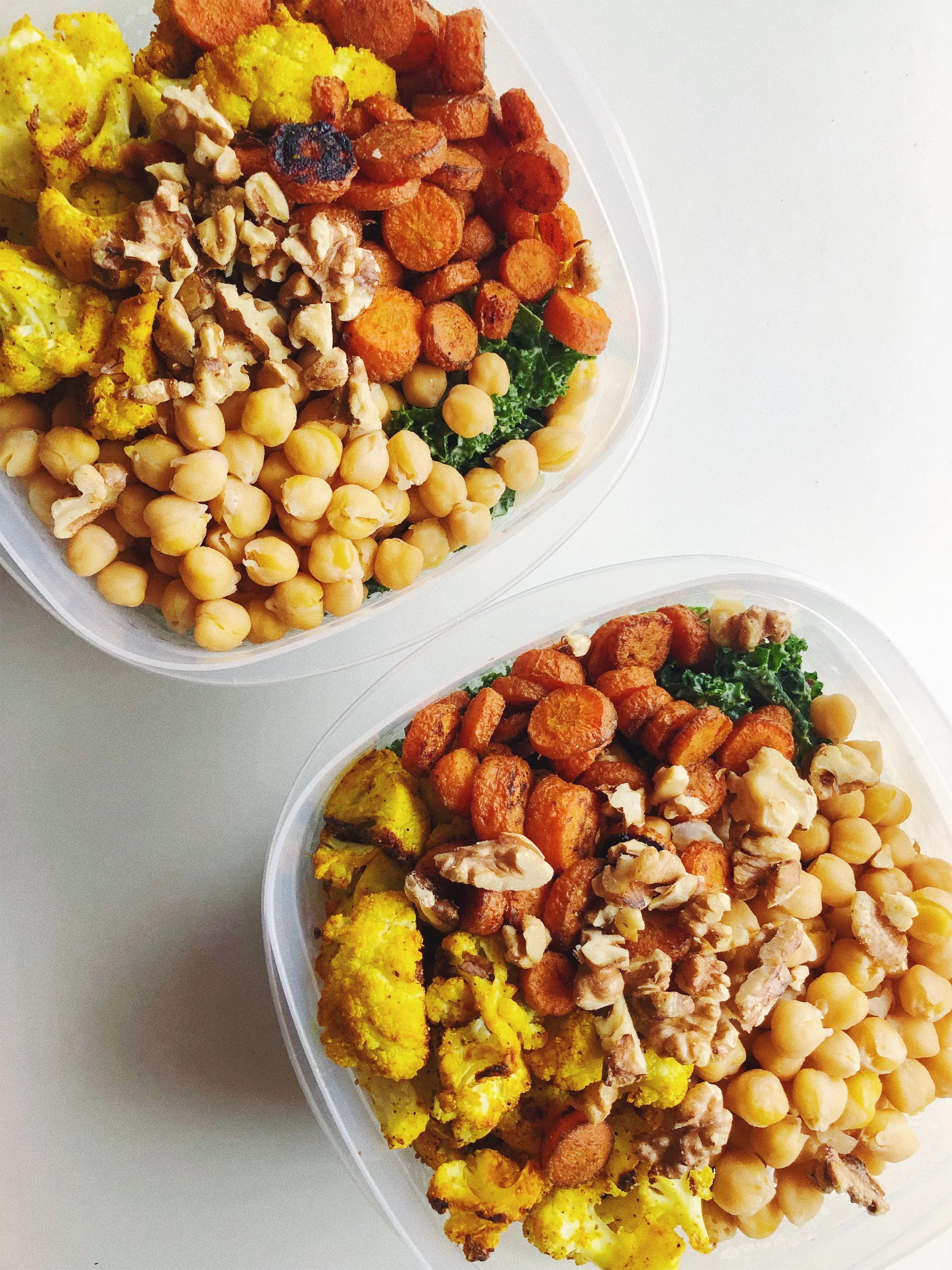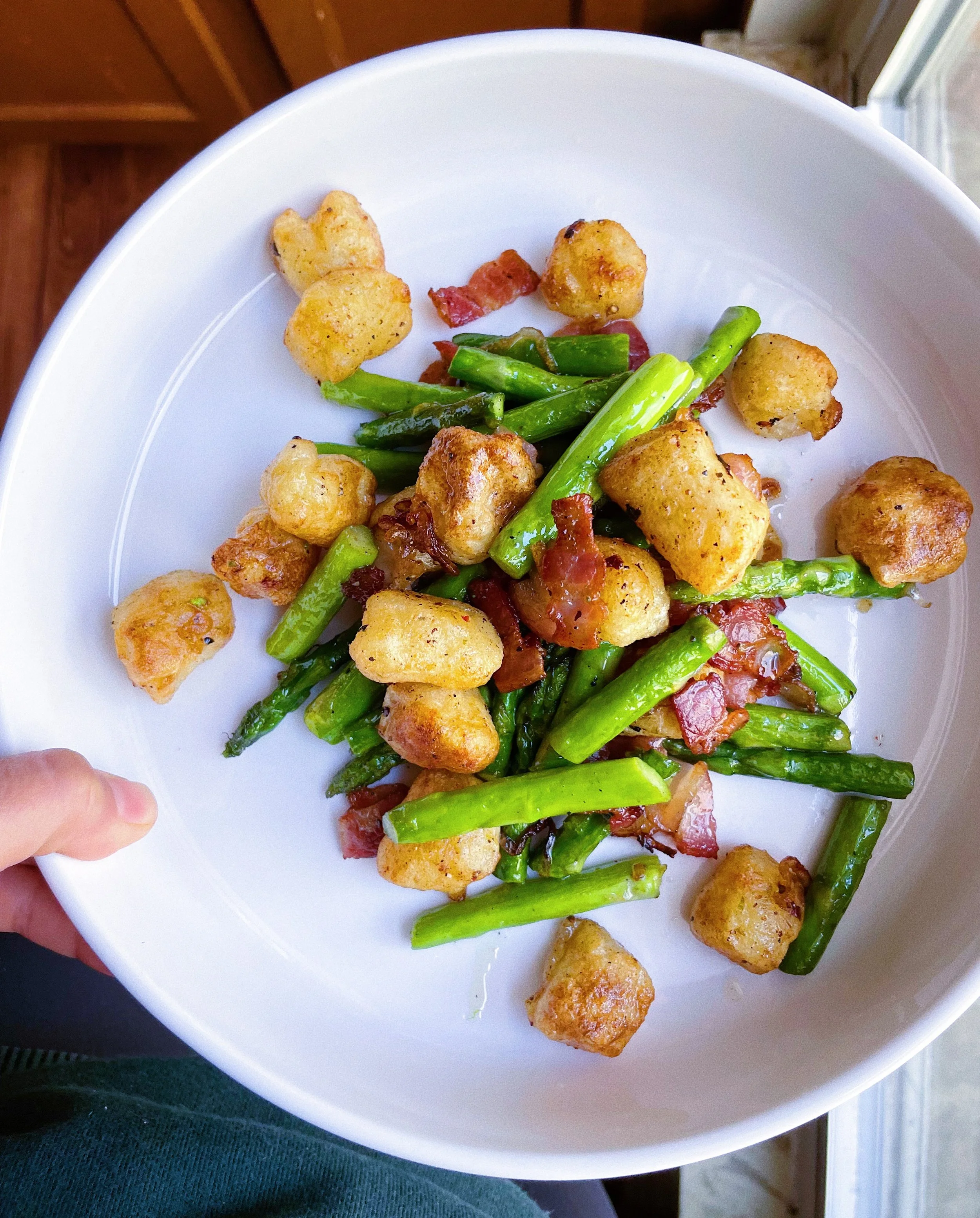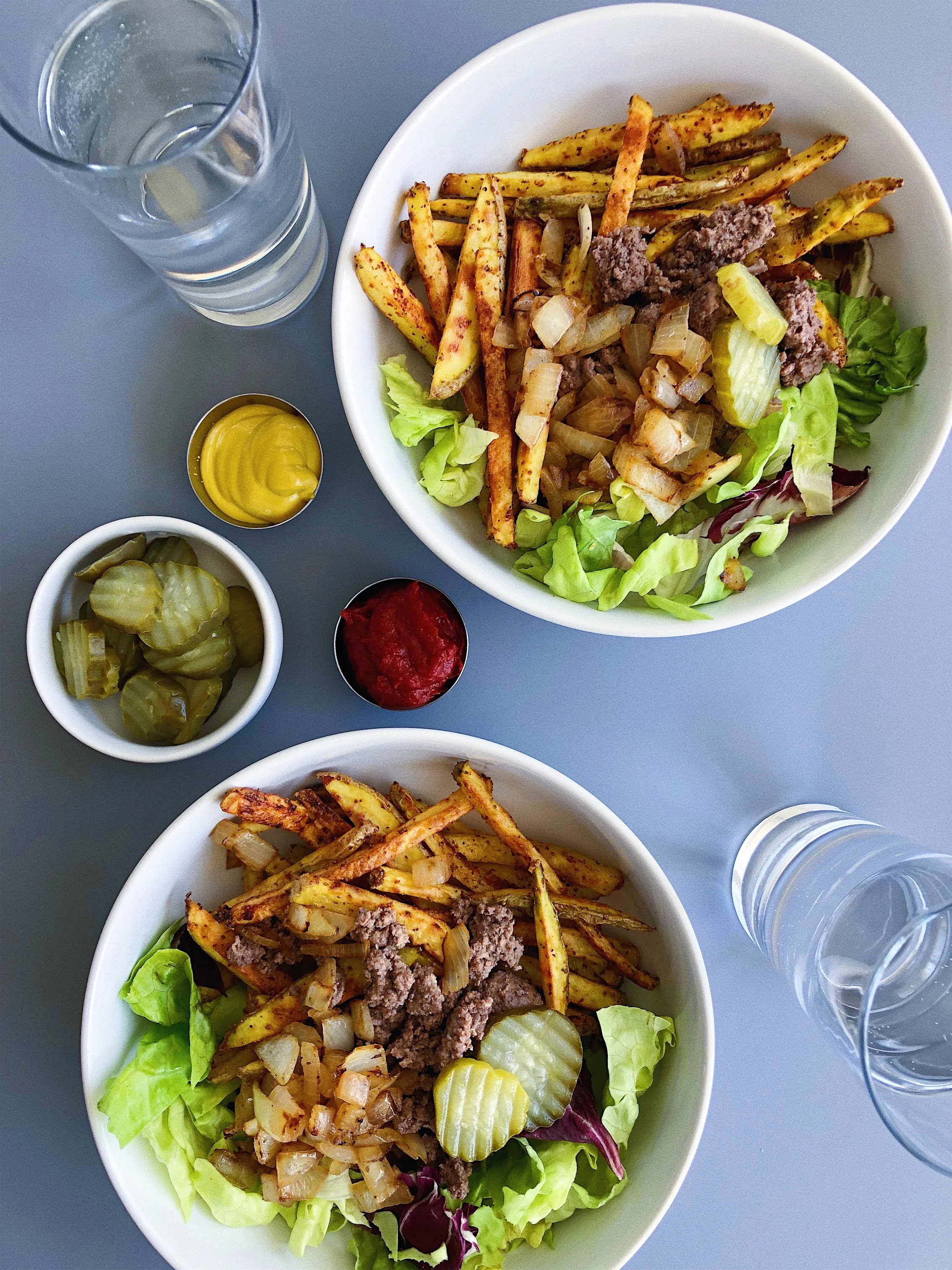I prescribe to the idea of bio-individuality. I believe each person is totally unique and that they need to find the foods that work best for them.
I believe that eating real foods in their whole form as often as possible is in the best interest of our health. Chips, crackers, cereal, cookies, baked goods, highly processed forms of cheese and meat - they're not real food, they're "food-like" items. They don't make anybody feel their best. Does that mean never eat them? No. It just means eat plenty of whole foods, and occasionally you can choose to eat these things.
In terms of macros, I definitely lean into the fat first camp. I think healthy fats should make up the majority of your calories. Moderate protein. Moderate carbs, mostly from fruits and veggies. Again, this largely depends on the individual and some may have a hard time tolerating a lot of fat, or some may require more protein than others.
People often ask me how I feel about specific food groups, so I wanted to share that with you. I'd love to hear your thoughts! And please let me know if I missed a food group or item that you're curious about!
“People have been & will continue to try to tell you what you should or should not be eating. At the end of the day, you have to eat what’s best for YOUR body.”
Vegetables: Unless you have an allergy or sensitivity to certain veggies, I say eat them all and eat lots of them. Make them the foundation of every meal. Greens are so ridiculously good for you. Aim to eat one huge salad every day.
Fruit: There is A LOT of debate about fruit. Some people argue it's just as bad as candy, others are fierce defenders. Some people are less carb-tolerant, meaning they can't handle sugar or carbohydrates very well (it spikes their blood sugar, affects mood, digestion, etc.) I think moderate amounts of fruit are totally fine - just don't overdo it. In the summer, I tend to eat more because it's available.
Meat: I don't personally eat that much meat and for about 4 years I didn't consume any. The more I studied and learned about meat, I realized that it wasn't so much meat itself that's harmful - it's the way we raise our animals that can have effects on our health. Opt for organic, grass-fed meats. That being said, I do think that in general people tend to overeat meat and under-eat vegetables. Have one plant-based meal a day (like Jessica Murnane says) and eat a smaller portion when you do eat meat.
Fish and Seafood: Wild-caught fatty fish are full of anti-inflammatory omega-3s which is awesome. The way we are treating our oceans, rivers and lakes is not awesome. Consume seafood and fish in moderation if you like it, but be careful not to overdo it. Heavy metals, pollutants and other chemicals can be present in wild-caught seafood.
Dairy: I don't believe dairy is necessary for health. Every nutrient in dairy is available from other sources. Plus, dairy tends to cause a lot of issues for people. Aside from the fact that most of us are lactose-intolerant, a lot of people find that it produces mucus, so they are stuffy or have excess phlegm. Personally, when I stopped eating dairy I effortlessly lost about 5 pounds. Many people who are intolerant to gluten are also intolerant dairy. People are very attached to dairy - especially cheese - and it's been shown that cheese can cause addictive tendencies. I don't think any food that you feel "addicted" to is a good choice.
In addition, most of the milk in America is pasteurized and homogenized. "Homogenization allows the enzyme xanthine oxidase in the milk cream to enter the bloodstream instead of being excreted, as would normally occur. When this enzyme enters the heart and arteries, it damages the membranes, creating scar tissue. Cholesterol accumulates on the scars and gradually clogs the articles." (1) I don't know about you, but that sounds like kind of a bum deal to me.
If you are going to go for dairy I would recommend organic, grass-fed and full fat. Fermented forms of dairy, like yogurt, are preferable because they're easier to digest. Same goes for aged cheeses. If you can find raw milk, that's a better choice because it retains the enzymes that help your body break down the milk. Grass-fed butter has some redeeming health qualities. I personally opt for ghee since the milk solids have been cooked off.
Eggs: I don't have a problem with eggs. We now know that dietary cholesterol has very little impact on cholesterol levels in the body (2). I would recommend buying organic. Get them locally if you can.
Beans/Legumes: Beans and legumes are packed with fiber, protein and many other nutrients. If you tolerate them (ie, if they don't make you feel gassy or bloated) eat them a few times a week. Some people who are less carb-tolerant may find it doesn't work with their blood sugar.
Grains: Another hot topic of debate! I think the biggest issue with grains is that they are the basis of processed foods and many of them are stripped of their outer germ - the part with all the nutrients. They're cheap and subsidized by the government. The US government used to recommend we eat 6-11 servings of grains DAILY - which is no coincidence!
Most people feel better with fewer grains in their diet. Again, if you're carb-intolerant, they might not be the best choice for you. I don't eat that many grains anymore, but I'm not militant about it. Oats are probably the grain I consume most frequently and every once in awhile I'll have some brown rice or quinoa.
If you do consume grains, I recommend eating whole grains (brown rice, quinoa, millet, etc.) and soaking them and preparing them at home. This ensures you're getting the beneficial nutrients from them.
Nuts and Seeds: Packed with fiber, healthy fats, protein and antioxidants - nuts and seeds are a great choice! I eat nuts and seeds daily. Hemp seeds, chia seeds, sunflower seeds, pumpkin seeds, sesame seeds, flax seeds, walnuts, almonds and pecans are what I keep stocked in my pantry. I splurge on macadamia and brazil nuts sometimes. One thing to keep in mind - it's important to rotate your consumption of nuts/seeds. Eating the same ones day after day increases your risk for developing a food intolerance. I also do cleanses 3-4 times a year where I opt not to incorporate nuts/seeds to give my body a break.
Protein Powders: I opt for plant-based protein powders with minimal ingredients. I rotate which ones I use and I don't use them every day. I often reserve them for after a gym session or intense workout. My favorite brands are Aloha and Genuine Health.
Coffee: Coffee has valuable antioxidants and can give us a nice perk in the morning. And it is delicious! I think 1-2 cups a day is fine, but more than that is where you start to see trouble. The excess of caffeine can tax adrenals and actually spike blood sugar. Some people just don't do well with the caffeine from coffee and in that case, definitely avoid it.
Tea: Herbal teas - all day, every day. Green tea is amazing for its antioxidant content and a more gentle form of caffeine. I've been loving on matcha ever since I tried it. Black tea is a little higher in caffeine, but still a good choice. Just don't overdo it with the caffeine!
A date-sweetened dessert.
Alcohol: In excess, alcohol causes a lot of issues - damage to the gut, nutrient-deficiency, blood sugar issues and more. Some people really enjoy drinking and for them I recommend sticking to 1-2 drinks, a few times a week. I personally rarely drink. I found that as I got healthier and felt better, I wanted alcohol less and less.
Sugar: Nope. There's no redeeming qualities when it comes to refined sugar. Coconut sugar, honey, maple syrup, and dates are my favorite ways to sweeten things. I will say these ingredients are more expensive than refined white sugar, but ideally you're not eating it everyday so a little goes a long way. Even if you're using natural sugars, I would still suggest consuming only occasionally. The only thing I eat with refined sugar is dark chocolate (1 square on some days).




























